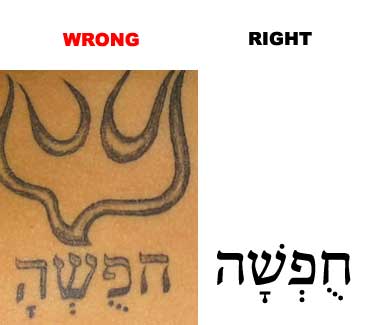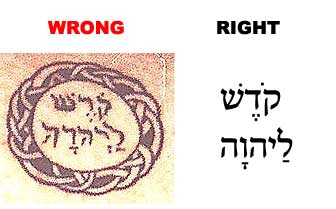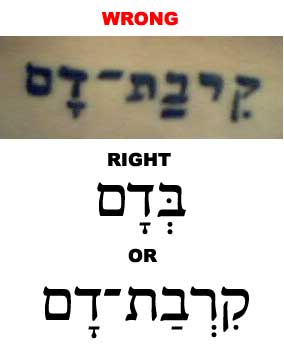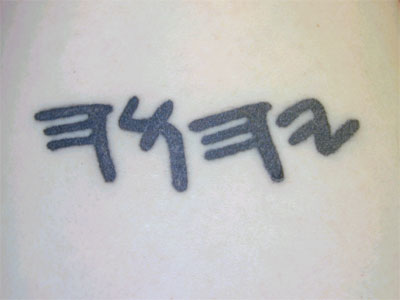 I recognize by internet standards this is old news, but I have to ask what sort of name is “Shiloh Nouvel Jolie-Pitt“? Talk about a mouthful — they’re giving the name “Maher-Shalal-Hash-Baz” a run for the money! (see Isaiah 8:1). Many newspapers reported that the first name of the new daughter of Brad Pitt and Angelina Jolie means “Messiah,” while others are a bit more nuanced and report that the name means “something like ‘his gift’ or ‘the peaceful one’ and refers to the Messiah.” While these different proposals each have some merit, when it comes right down to it, the etymology and meaning of the name Shiloh remain obscure.
I recognize by internet standards this is old news, but I have to ask what sort of name is “Shiloh Nouvel Jolie-Pitt“? Talk about a mouthful — they’re giving the name “Maher-Shalal-Hash-Baz” a run for the money! (see Isaiah 8:1). Many newspapers reported that the first name of the new daughter of Brad Pitt and Angelina Jolie means “Messiah,” while others are a bit more nuanced and report that the name means “something like ‘his gift’ or ‘the peaceful one’ and refers to the Messiah.” While these different proposals each have some merit, when it comes right down to it, the etymology and meaning of the name Shiloh remain obscure.
The name Shiloh, written variously in Biblcial Hebrew as ש×?ִלֹה , ש×?ִילֹו, ש×?ִלֹו, is derived from a Hebrew name for a town in the hill country of Ephraim. There are many traditions surrounding the place called Shiloh. It was one of the main northern shrines in ancient Israel and was also associated with the Aaronite priesthood of Phinehas.
The name is masculine in form and — depending on the spelling — may be derived from the root verb shalah (ש×?לה) or shalev(ש×?לו), “have rest, be at ease.” The other two meanings that the newspapers suggest are tied to different interpretations of the use of the word in Genesis 49:10, which is considered by some to be one of the most difficult verses in the book of Genesis. Compare the following translations:
לֹ×?־יָסוּר ש×?ֵבֶט מִיהוּדָה וּמחֹקֵק מִבֵּין רַגְלָיו עַד כִּי־יָבֹ×? ש×?ִילֹה וְלֹו יִקְּהַת עַמִּי×?
The sceptre shall not depart from Judah, nor a lawgiver from between his feet, until Shiloh come; and unto him shall the gathering of the people be (KJV).
The scepter shall not depart from Judah, nor the ruler’s staff from between his feet, until tribute comes to him; and the obedience of the peoples is his (NRSV).
The scepter will not depart from Judah, nor the ruler’s staff from between his feet, until he comes to whom it belongs and the obedience of the nations is his (NIV).
The problem with the Masoretic Hebrew text of his verse (as represented by the KJV) is that it is not clear what precisely “when Shiloh comes” is referring to. If it refers to a time when a Judaean ruler controls Shiloh, this would have been under the Judaean Davidic monarchy, though Shiloh plays no significant role at that time or later. The other two translations are based on emendations of the text involving dividing the words differently. The alternative found in the NRSV, “until tribute comes to him,” redivides and repoints the consonants as: יֻבָ×? ש×?Ö·×™ לה , . This connects the word with the Hebrew shay (ש×?×™ ), “gift, tribute.” The third option takes the initial shin as a relative: ש×?Ö¶ לּה , “to whom it belongs” = until the owner of the scepter (i.e., the messiah) comes.
When it comes right down to it, depending on how you understand this passage, it may create some associations between the name Shiloh and a coming Messiah, or it may refer to a gift or somekind, or it may refer to the place Shiloh — but it is unlikely that it refers to all three. The meaning of the name is best taken as “the peaceful one” or the like and doesn’t necessarily have any messianic connotations.
So the moral of the story is, if you are a rich celebrity and want to give your child a foreign name, make sure to do your research! Of course, if they just picked the name because they liked the sound of it, then that’s their perrogative. If they picked the name because of its meaning, then they would likely be disappointed in realizing that it may not mean what they think.







 Tonight The Academy of Motion Picture Arts and Sciences will put on their yearly spectacle called the Oscars. I may watch the 78th Annual Academy Awards tonight, though I find the actual award ceremony to be way too long and way too boring — and I just can’t stand all of the glitz and glamour that surrounds the telecast. I really don’t care what so-and-so wears on the red carpet or what expensive gifts the already grossly over-paid and self-important celebrities received for the hard work of reading a prompter when presenting an award!
Tonight The Academy of Motion Picture Arts and Sciences will put on their yearly spectacle called the Oscars. I may watch the 78th Annual Academy Awards tonight, though I find the actual award ceremony to be way too long and way too boring — and I just can’t stand all of the glitz and glamour that surrounds the telecast. I really don’t care what so-and-so wears on the red carpet or what expensive gifts the already grossly over-paid and self-important celebrities received for the hard work of reading a prompter when presenting an award! More significantly, the
More significantly, the